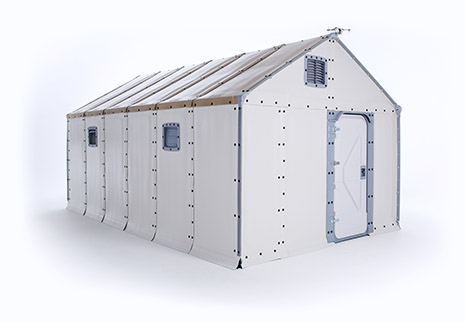
The Better Shelter is a temporary 17.5 m2 light weight, modular emergency shelter that resembles a house with semi-hard walls, four windows and a high ceiling
At an awards ceremony held at London’s Design Museum last night the team behind Better Shelter, a Swedish social enterprise organisation, were awarded the coveted Beazley Design of the Year 2016 award.
Better Shelter aims to be the leader in emergency and temporary shelter innovation by developing products together with partners, customers and, most importantly, the people who live in the shelters.
For this, its first product, the organisation worked with the IKEA Foundation and the UNHCR (United Nations High Commissioner for Refugees), to develop a safer, more dignified home for those who have been displaced due to conflict and natural disasters.
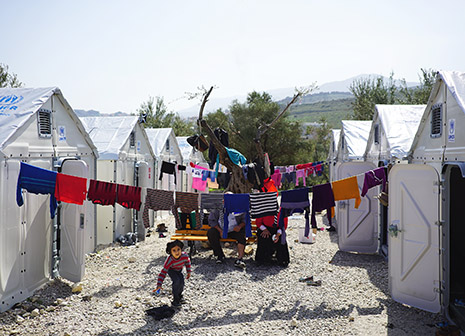
The Better Shelter may be humble but it is somewhere even the most vulnerable people can call a home away from home
Selected as the winner of the Architecture category, the Better Shelter pipped the five other category winners to claim the overall prize in the annual Design of the Year award, which is now in its ninth year.
Better Shelter, which features a lockable front door and a solar powered wall, utilises flat-pack technology used in furniture design and has repurposed it to create a shelter that can be easily assembled and transported.
Flat-packed in a two-box kit along with all the required tools, the shelter is easily assembled in about four hours. The photovoltaic panel provides enough energy to power the supplied light or to charge a mobile phone.
30,000 Better Shelters’ are already in use around the world and the judges chose Better Shelter as a clear demonstration of scalable design that has the ability to make a worldwide impact.
Recently announced winners of the Beazley Design of the Year 2016 two members of the Better Shelter team in front of their invention
One of the judges for this year’s prize – Dr Jana Scholze, Associate Professor, Curating Contemporary Design at Kingston University – had this to say of Better Shelter: “Better Shelter tackles one of the defining issues of the moment: providing shelter in an exceptional situation whether caused by violence and disaster. Sadly, we have seen many instances recently where temporary shelter was necessary.
“Providing not only a design but secure manufacture as well as distribution makes this project relevant and even optimistic. It shows the power of design to respond to the conditions we are in and transform them. Innovative, humanitarian and implemented, Better Shelter has everything that a Beazley Design of the Year should have.”
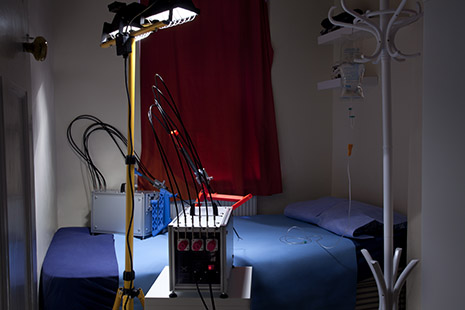
The OpenSurgery robotic surgeon was awarded the Beazley Digital Design of the Year
Other notable winners in the five categories include OpenSurgery in the Digital category, which was developed as a graduation project at the Design Interactions department of the Royal College of Art (London UK, 2015) in response to uninsured Americans posting videos on YouTube and performing minor operations and medical hacks on themselves and others.
The Robotic Surgeon proposes an alternative do-it-yourself robot. By combining 3D printing with laser cutting technology hacked with surgical equipment bought online, the machine theoretically could be replicated at a fraction of the cost of professional surgical care.
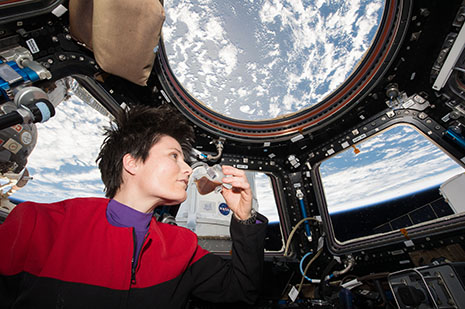
A coffee cup for use by astronauts was awarded the Beazley Product Design of the Year
The winner of the Product category went to Space Cup, which was created by a team from IRPI LLC, Portland State University and NASA Johnson Space Centre. The Space Cup was designed and developed using scientific results of experiments conducted aboard the International Space Station.
The cup is designed to exploit passive capillary forces to replace the role of gravity to create an earth-like drinking experience in the low-gravity environment of space. Sealed drink bags are normally sipped through a straw to avoid spilling in space.
The Space Cup however uses surface tension, fluid wetting properties, and a unique shape to drive the liquid toward the astronaut’s mouth whilst drinking from an open cup.
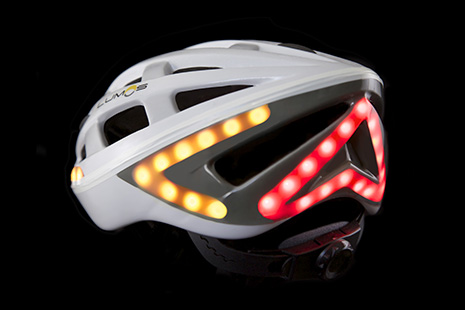
Lumos, the world’s first smart bicycle helmet with integrated light signals, was awarded the Beazley Transport Design of the Year
The winner of the Transport category went to Lumos – a next generation bicycle helmet with integrated lights, brake and turn signals.
Designed by the Lumos team – Eu-wen Ding, co-founder & CEO and Jeff Haoran Chen, co-founder & CTO – the helmet features a built in accelerometer that detects when you’re slowing down and automatically displays a brake light and turn signals.
These category winners along with the further 70 other nominations are on display at the Design Museum until 19 February. For opening times and tickets visit the website.






